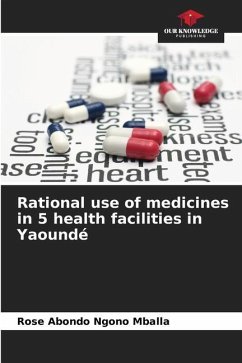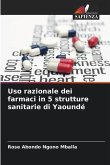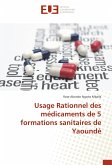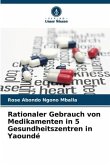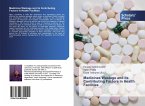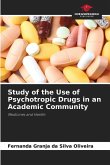Our study was an opportunity to assess the practices and mechanisms in place to promote rational use of medicines in peripheral health facilities. The level of awareness of prescribers on rational use remains limited. Indeed, the results reveal that the majority of them have a vague knowledge of the concept of rational prescribing and of the tools to support rational use (EML, therapeutic formulary). Furthermore, although they are all aware of STPs, some of their criticisms of the EML indicate a lack of training, information and awareness of the concept of essential generic medicines. However, some in-service training has been implemented since 2010 with the support of the WHO.
Bitte wählen Sie Ihr Anliegen aus.
Rechnungen
Retourenschein anfordern
Bestellstatus
Storno

